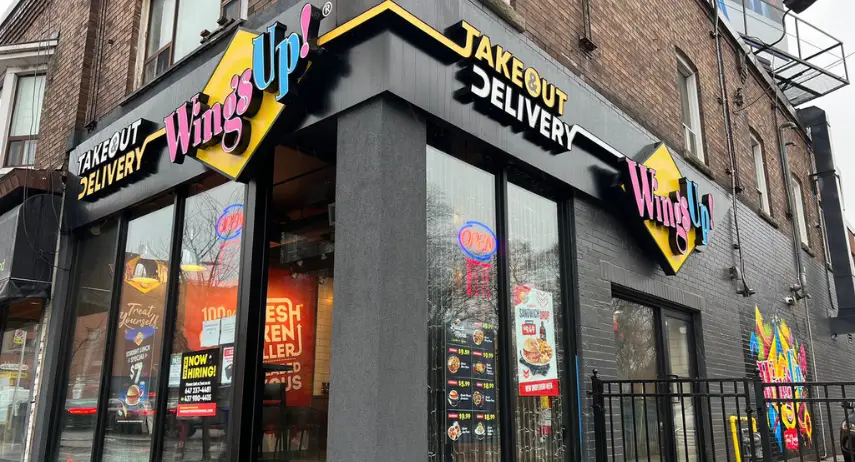Things to Consider Before Buying a Franchise

Introduction: Why Buying a Franchise Can Be a Smart Move
Buying a franchise is one of the most popular ways to start a business with an established brand name. From fast-food franchises like Tim Hortons and McDonald’s to service-based franchises in cleaning or fitness, entrepreneurs gain the advantage of proven systems, brand recognition, and ongoing support.
But before signing that franchise agreement, it’s critical to understand the factors that determine whether the investment will lead to long-term success. This guide outlines key things to consider before buying a franchise so you can make an informed decision and avoid costly mistakes.
1. Understand the Total Investment and Franchise Fees
Before you commit, calculate the true cost of buying a franchise, which includes:
-
Initial franchise fee (ranges from $10,000 to over $50,000 depending on the brand)
-
Build-out costs and equipment
-
Royalty fees and marketing contributions
-
Working capital for at least 6-12 months
Pro Tip: Always ask for an Item 7 breakdown in the Franchise Disclosure Document (FDD) to understand all upfront and ongoing expenses.
2. Evaluate the Brand Reputation and Market Demand
Not every franchise brand is equally strong. Research:
-
Customer reviews and online ratings
-
Franchise growth trends over the past 5 years
-
Competition in your target location
Long-tail keyword example: "how to evaluate franchise brand reputation before investing"
A franchise with a strong reputation will provide you with built-in customer trust and brand loyalty.
3. Analyze Territory Rights and Location Selection
Franchise success heavily depends on location. Understand:
-
Whether your territory is exclusive or shared with other franchisees
-
Demographics and traffic patterns in your chosen area
-
Future expansion opportunities if you plan to scale
Key Insight: Poor location selection is one of the top reasons franchise owners struggle.
4. Review the Franchise Disclosure Document (FDD) Carefully
The FDD is a legal document that outlines everything about the franchise system, including fees, obligations, and litigation history. Pay attention to:
-
Item 19: Financial performance representation
-
Litigation history of the franchisor
-
Termination and renewal clauses
Consult with a franchise attorney to review this document thoroughly.
5. Consider Ongoing Support and Training
Ask these questions:
-
Does the franchisor provide initial and ongoing training?
-
Is there marketing and operational support after launch?
-
Are there annual conferences or community forums for franchisees?
Franchises that offer comprehensive support systems significantly improve your chances of success.
6. Assess the ROI and Break-Even Timeline
One of the most important factors is when you’ll start making profits. Research:
-
Average break-even period (6-24 months depending on industry)
-
Average revenue per franchise location
-
Profit margins and seasonal trends
Long-tail keyword example: "how long does it take to make profit after buying a franchise"
7. Understand the Royalty and Marketing Fee Structure
Most franchises charge:
-
Royalty fees (usually 4%–8% of revenue)
-
Marketing or advertising fees (2%–4%)
Make sure these fees align with the support provided and consider how they impact your bottom line.
8. Speak with Existing Franchisees
Talking to current franchise owners provides real-world insights you won’t find in marketing brochures. Ask:
-
Are they satisfied with the franchisor’s support?
-
What challenges do they face daily?
-
Would they invest again if given the choice?
9. Consider Your Lifestyle and Time Commitment
Some franchises require full-time management, while others allow semi-passive ownership. Ensure the franchise model matches your personal goals and desired lifestyle.
10. Get Professional Guidance Before Signing
Hiring a franchise consultant or business advisor can save you from costly mistakes. They can:
-
Match you with the right franchise based on budget and skills
-
Help analyze financial projections
-
Negotiate better terms in the agreement
Final Thoughts: Making the Right Franchise Decision
Buying a franchise can fast-track your path to entrepreneurship, but proper due diligence is non-negotiable. Consider the total costs, location, franchisor support, and long-term profitability before making the leap.
If you’re exploring opportunities in Canada, the USA, or internationally, platforms like FranchiseVoice.com allow you to browse thousands of franchise opportunities and connect with expert consultants.
Frequently Asked Questions (FAQ)
Q1: What are the first steps to buying a franchise?
Research industries, review your budget, and request the Franchise Disclosure Document (FDD).
Q2: How much money do you need to buy a franchise?
Costs vary widely, from $20,000 for home-based franchises to over $1 million for restaurant franchises.
Q3: Can I finance a franchise purchase?
Yes, through SBA loans (USA), bank loans, or franchisor financing programs.




